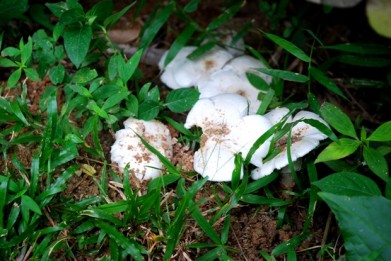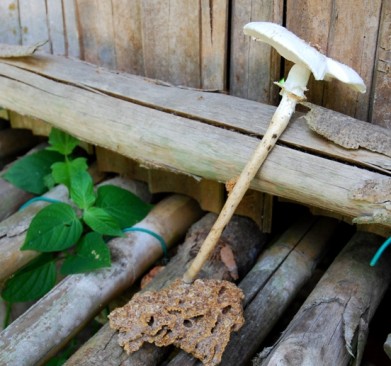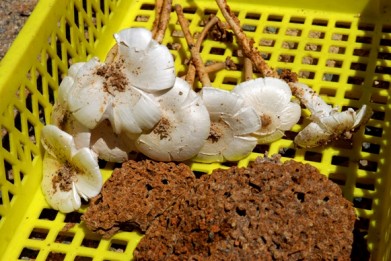Apr 13, 2011
Symbiotic Relationships - Ant-Hill Mushrooms
Now here's a sight for sore eyes, cendawan busut or ant-hill mushroom, termitomyces albuminosa.
The mushroom grows to the surface from the termite nest (above photo), which can be a foot (30cm) up. The entire stalk is edible and delicious.
It is one of the most delicious mushrooms, and leave ALL cultivated mushrooms miles behind in terms of taste and texture.
Unfortunately it is still not possible to cultivate this mushroom commercially. It is symbiotic with a certain termite, odontotermes spp.
The termites cultivate the mushroom by breaking down wooden material that the mushroom needs to grown on. There is speculation that the mushroom needs the dung of the termites too to grow. The termites in turn use the material decomposted by the mushroom as food.
This is called, Living Together.
11:07 Posted in Blog | Permalink | Comments (3) | Tags: cendawan busut, termitomyces albuminosa, odontotermes spp, symbiotic relationships











Comments
HI,
I discovered that apart from the mushroom being delicious,it can also produce plenty of bio-fuel (bio-ethanol) on its own.How I wish they could be grown commercially.
Posted by: Eric Makau | May 24, 2011
Hi Eric,
What I am doing now is to mark all known spots and then 'feed' the termites by laying wood material on a regular basis at those spots. Hopefully this will result in more ant hills and hence more mushrooms.
Posted by: HS | May 25, 2011
Keep on trying. It sounds encouraging.I tried using the digested plant matter from the anthill which I knew contained the mushroom spores but no mushroom germinated.
Posted by: Eric | Jun 01, 2011
The comments are closed.